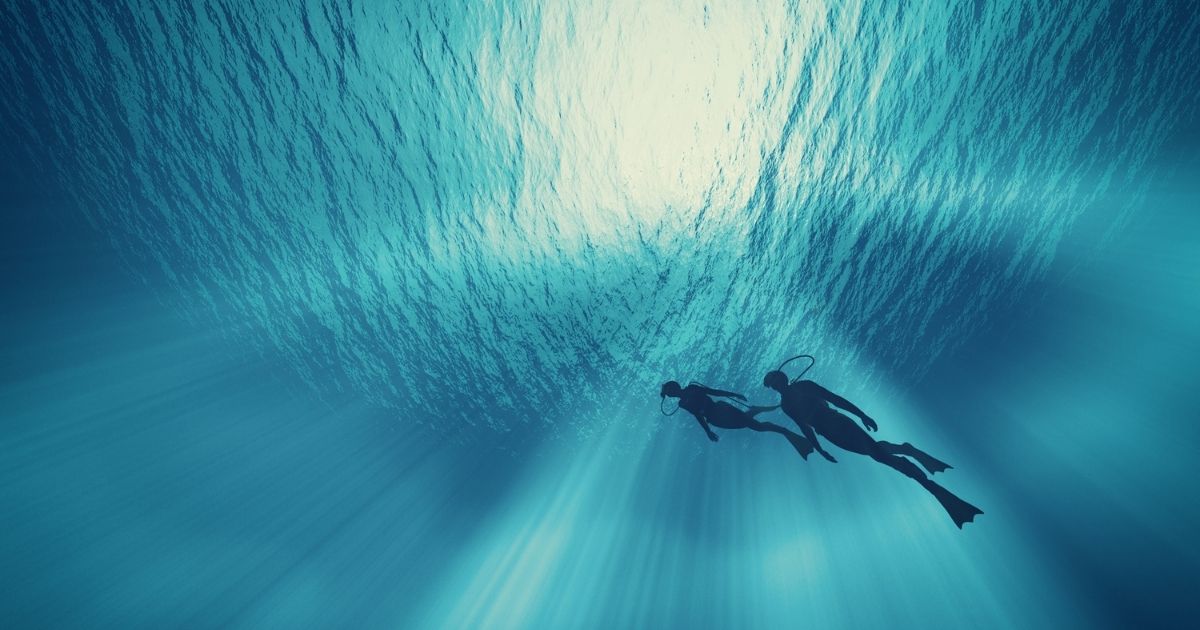Karl Whiteman first experienced scuba diving while on holiday with his wife in August 2019. An ex-navy service man of 20 years, he had been diagnosed with PTSD and lived with painful injuries. “I found tranquility for the first time in the water,” Whiteman recalled. “When your floating it feels like you’re in the clouds and the barrage of stimulations are gone.”
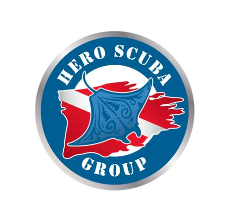 When underwater, the pains associated with his injuries had completely subsided. Was this also the case for others? Determined to find out, Whiteman shared his idea for a new organization to several contacts, and two months later his idea became a reality. In October 2019, Hero SCUBA was officially launched as a new not-for-profit backed by a passionate team of co-founders: Jim Kemter, President; Karl Whiteman, Chief Operating Officer; Larry Rice, Treasurer; Brandon Seibert, Vice President; and Stephen Bradford, Secretary.
When underwater, the pains associated with his injuries had completely subsided. Was this also the case for others? Determined to find out, Whiteman shared his idea for a new organization to several contacts, and two months later his idea became a reality. In October 2019, Hero SCUBA was officially launched as a new not-for-profit backed by a passionate team of co-founders: Jim Kemter, President; Karl Whiteman, Chief Operating Officer; Larry Rice, Treasurer; Brandon Seibert, Vice President; and Stephen Bradford, Secretary.
Ex air-force medic, Brandon Seibert, has been diving since 2008 after he was medically discharged after 12 years of service. In 2011, he began teaching SCUBA diving and was Whiteman’s instructor for his open water qualification back in the United States. For Seibert, he did not feel the therapeutic effects until he was diving every weekend. In 2019, he noticed a dramatic change and was able to reduce his medications from 13 different types, to only six medications a day.
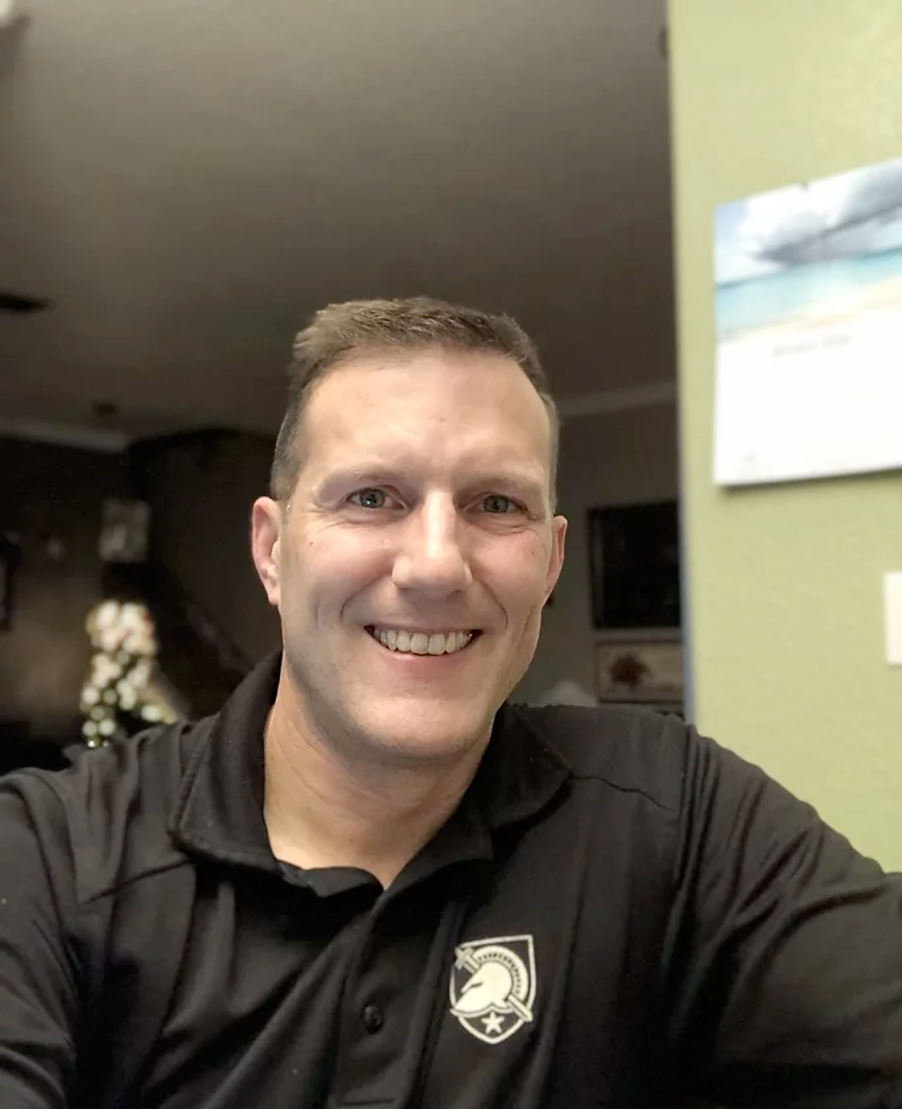 Jim Kemter, President.
Jim Kemter, President.
Seibert explained, “When diving, you can listen to the bubbles, get out of your head and stop overthinking. It has a very calming effect. In regard to pain management, the pain is still there and will always be there, but when I’m underwater I don’t have any pain at all.”
Scientists at Johns Hopkins University have conducted research on the effects of scuba diving on the motility of veterans with spinal cord injuries. Research found a significant improvement in bodily movement and an 80 percent reduction in PTSD symptoms.
When discussing his dramatic reduction in medication, Seibert described how one theory puts it to the nitrogen bubbles produced during scuba diving, which have an effect on serotonin levels in the brain. Serotonin is a chemical that is secreted by the body and increases a person’s mood, but serotonin levels are affected by PTSD. The medication that Seibert stopped taking after feeling the therapeutic effects of scuba diving had all been serotonin based.
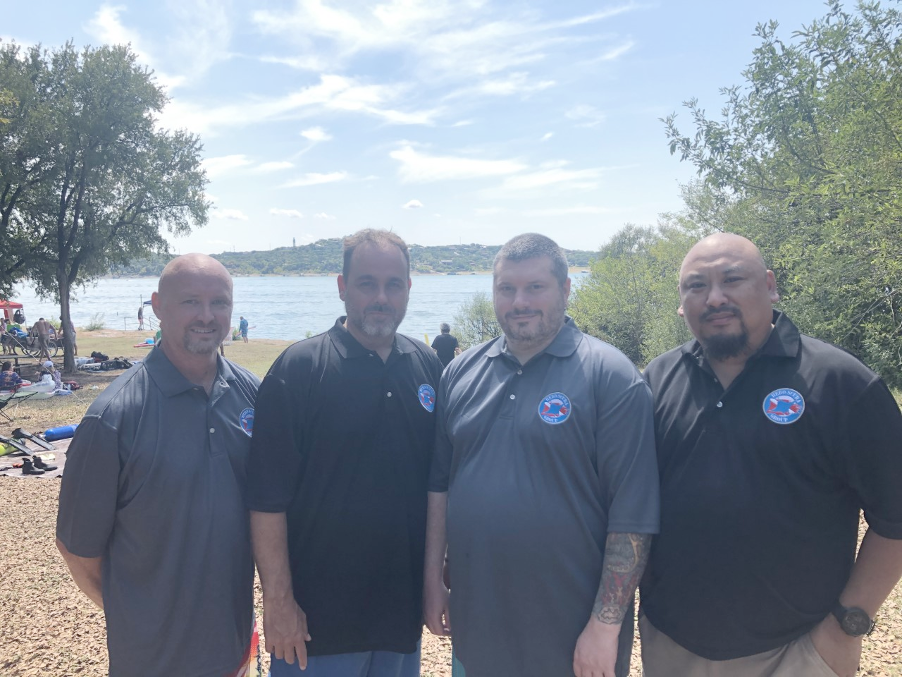 Here are the other members of Hero SCUBA Group at Lake Travis in Austin Texas teaching Open Water Scuba Diver course. From left to right, Karl Whiteman, Co-Founder/Chief Operating Officer (PADI Master Scuba Diver); Larry Rice, Treasurer (PADI Master Scuba Trainer); Brandon Seibert, Co-Founder/Vice President (PADI Master Scuba Trainer); Stephen Bradford, Co-Founder/Secretary (PADI Instructor Development Course Staff Instructor)
Here are the other members of Hero SCUBA Group at Lake Travis in Austin Texas teaching Open Water Scuba Diver course. From left to right, Karl Whiteman, Co-Founder/Chief Operating Officer (PADI Master Scuba Diver); Larry Rice, Treasurer (PADI Master Scuba Trainer); Brandon Seibert, Co-Founder/Vice President (PADI Master Scuba Trainer); Stephen Bradford, Co-Founder/Secretary (PADI Instructor Development Course Staff Instructor)
A Role in Ocean Conservation
Hero SCUBA hopes to play a role in ocean conservation over the coming years by completing tasks such as river clean-ups. To date, the not-for-profit is involved with other marine conservation organizations such as the Coastal Conservation Association, American Association of Underwater Science, Ocean Conservancy and the Coral Restoration Foundation. They are also training become scientific divers with the goal of eventually completing scientific research. Whiteman explained “Conservation gives people a purpose when they dive. We are applying the ‘big picture’ idea we had in the military to ocean conservation, giving our divers a higher purpose”.
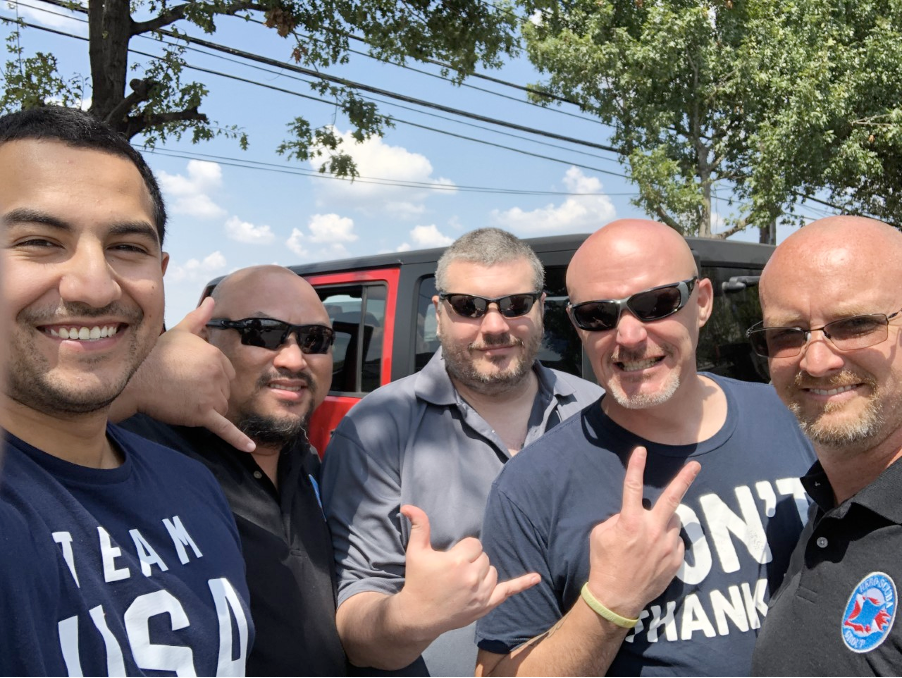 Here are our first-class graduates, from left to right: Angel Hernandez, Leon Valley Firefighter/Paramedic; Stephen Bradford, Hero SCUBA Group Secretary/Instructor Development Course Staff Instructor; Brandon Seibert, Hero SCUBA Group Vice President/Master Scuba Trainer; Ryan Rogers, Army Veteran and PTSD Foundation of America Business Manager; Karl Whiteman, Hero SCUBA Group Chief Operating Officer
Here are our first-class graduates, from left to right: Angel Hernandez, Leon Valley Firefighter/Paramedic; Stephen Bradford, Hero SCUBA Group Secretary/Instructor Development Course Staff Instructor; Brandon Seibert, Hero SCUBA Group Vice President/Master Scuba Trainer; Ryan Rogers, Army Veteran and PTSD Foundation of America Business Manager; Karl Whiteman, Hero SCUBA Group Chief Operating Officer
Living and Diving with PTSD
As for many, past traumas still plague both Seibert and Whiteman from their time in the military, but now their concerns lay in a future diagnosed with PSTD. Beyond the physical and mental difficulties associated with the condition, some inflicted veterans and first responders have been labelled as potentially problematic by some members of society, sometimes ending their careers. With this possibility in mind, Whiteman and Seibert fought their PTSD diagnoses. However, through therapies, medication and diving, they have come to terms with their symptoms and are now focusing on their recovery.
This is not always the case for many individuals affected by PTSD. It’s estimated that 22 veterans a day commit suicide in the US alone; an alarming statistic that causes many to question the availability and success of current therapies. But there is hope through diving. Whiteman continued, “If I had found this release earlier, I would have been further down the road in my healing.”
Past studies and the veterans own experience have shown how diving offers an escape from disruptive stimulations for PTSD sufferers. Through Hero SCUBA, the bonds formed between those teaching and learning can also extend beyond the confines of the dives and can branch out into all aspects of their lives, creating a vital support network.
Seibert and Whiteman recounted an incident from their most recent dive. “A student began experiencing symptoms of PTSD, but Brandon was able to talk with them until their symptoms (claustrophobia) subsided,” recalled Whiteman.
“The moment was lifechanging,” added Seibert. “There was a lightbulb moment when an instantaneous change was seen in the student once they fully relaxed and entered the water. Not only did their symptoms subside but they opened up about their diagnosis after a short time of us knowing each other – normally veterans bottle things up but it’s an important part of the healing processes. In the beginning, they could only bare 10-20 seconds underwater, but by the end of the session they had better buoyancy than me!”
Hero SCUBA will continue to give hope to those suffering by offering support and providing a role in protecting our oceans and guarding our seas; a new purpose.
If you would like to get involved with the organization or learn more about the work that they do, please contact via This email address is being protected from spambots. You need JavaScript enabled to view it.
This article was based on an interview conducted with two co-founders of Hero SCUBA Group, Karl Whiteman and Brandon Seibert.
By Kaya Taylor, ECO Contributor


